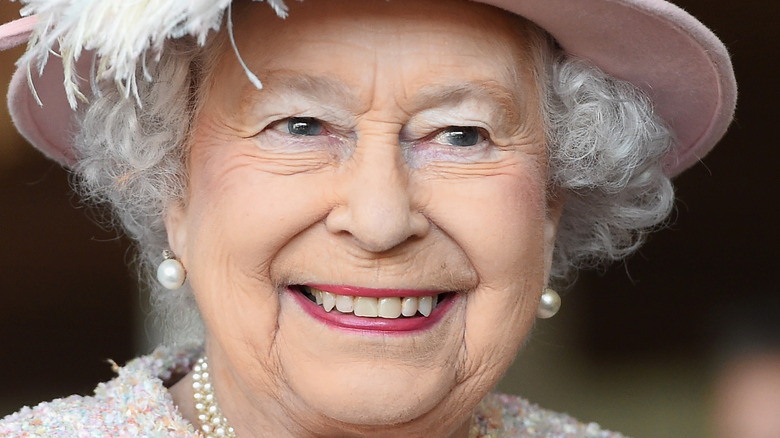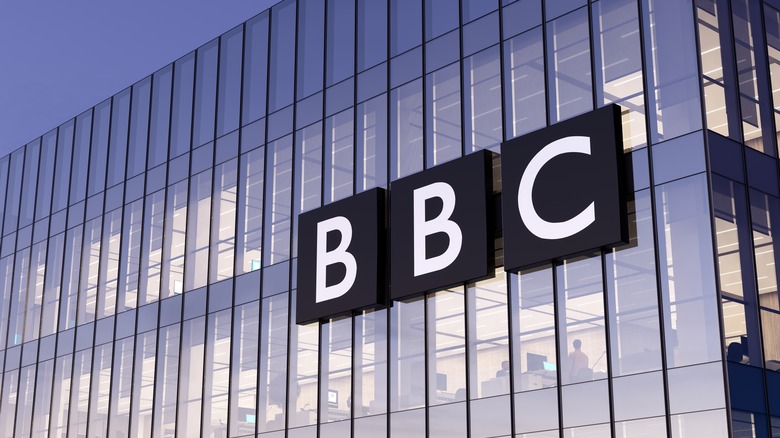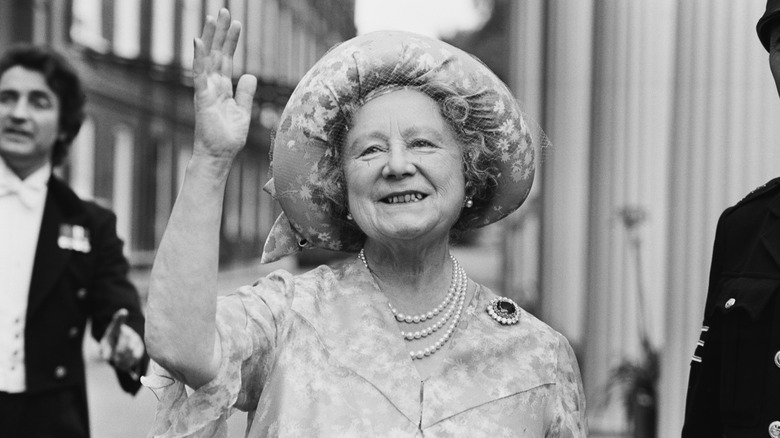The BBC Will Make A Major Change In Programming Right After The Queen Dies
Queen Elizabeth II was born on April 21, 1926, and became Queen of England at the age of 25 after the death of her father, King George VI, on February 6, 1952. Her official crowning was done on June 2, 1952, according to History. After over 70 years on the throne, Queen Elizabeth is the only English monarch many have known over the span of their entire lives. With this in mind, it can be difficult to imagine the process that will take place when the day comes that the Queen of England dies.
While there are systems in place for when a member of the royal family passes away, there is an even more strict process for what is to happen when the death of Queen Elizabeth does take place. For example, the day of her death will be known as "D-day," and every subsequent day leading up to her funeral will be known as "D+1," "D+2," "D+3," all the way up until the day she is laid to rest, 10 days after her death, according to Politico. There's a lot of untold truth about Queen Elizabeth, and some are regarding the more obscure procedures in the event of her death. After the death of the queen, it may come as a surprise to some that there will be a change in programming on the BBC network.
BBC will halt all comedy programming following the death of the Queen
Along with the rest of society, the BBC has rigorous guidelines in place that will go into effect immediately following the news of Queen Elizabeth's passing. According to Daily Mail, these guidelines include everything from the national anthem being played in the background while images of the queen are shown on screen, to the on-air staff being required to wear all black during the announcement of the queen's death as a sign of mourning.
While radio stations switch over to inoffensive music and society comes to a halt, there's another detail that BBC will put into play during the days leading up to the queen's funeral: All comedy shows will be off the air. The BBC paused all of its comedic programmings after the death of King George VI in 1952 and plans to take these same measures following the death of Queen Elizabeth out of respect and mourning, according to Pop Sugar. Though with all of the other changes and adjustments to everyday life and reflections on the most notable moments in Queen Elizabeth's reign, it isn't likely the halt on comedy will be noticed by many after her passing.
The BBC has been criticized for its reporting
The steps the BBC will take following the death of the queen come after the less than professional way the network announced the death of the Queen Mother (above) in May 2002. According to the Daily Mail, newsreader Peter Sissons announced the death of the Queen Mother while wearing a grey suit and a burgundy tie. Many took great offense to this as other networks wore all black while giving their announcements of her death as a sign of mourning.
Following the death of Queen Elizabeth II, so much will be at a standstill, and millions will be in mourning. There will be little to no room for error as the many steps that need to be taken to assure she will be mourned appropriately and laid to rest before society picks itself up again are rolled out. When Queen Elizabeth is buried, everyday things like comedy programs will be back to normal, though, for many, nothing will be the same.


